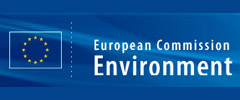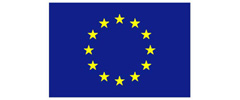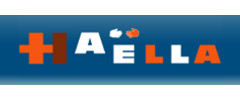Tracing Nano
Currently many products at the market incorporate nanomaterials for which a proper risk assessment could not be made. Contrary to the REACH principle no data no market the presence of nanomaterials in its content is generally not reported either
10.09.2012 | WECF Project
| Countries: | European Union |
| Donors: | Ministry of Infrastructure and the Environment, the Netherlands |
| Partners: | IVAM, Natuur en Milieu, FNV, ETUI, EEB,WECF and associated partner Consumentenbond (Dutch Consumers Union) |
| Duration: | 04/2012 - 01/2014 |
Currently many products at the market incorporate nanomaterials for which a proper risk assessment can not be made. Contrary to the REACH principle 'no data no market' the presence of nano materials in its content is generally not reported either. There are as well products put on the market that use nano as sales argument while the product appears not to contain any MNMs.
Given this situation, it is the demand of many stakeholders (industrial companies as well as consumers and their organizations) to be informed about the nano materials used in their products to be able to perform an independent risk assessment and if deemed necessary to develop a risk management strategy.
The use of the precautionary principle is advocated by European and National governmental and industrial policy makers in case of lacks in knowledge or uncertainties. Based on this principle, a diversity of tools has been developed to support consumers, employers and employees in assessing uncertain risks of nanomaterials and nanoproducts and performing risk management.
However, the issue of traceability has to be solved in order to be able to apply these tools, bringing the issue back to the question on how to recognize a nanomaterial or nanoproduct? Almost all users of nanoproducts struggle with the same principle question: to assess the need for possible precautionary measures, it must be clear whether NMs are used in the product.
Project goals:
- Focusing the wishes and demands of the CSOs regarding the traceability of nanomaterials and nanoproducts and clarify the joint interests of CSOs on this issue
- Formulate building blocks for a possible strategy at the European level to enhance the traceability of nanomaterials in products and that will allow to meet the formulated demands.
- Test the feasibility of the designed strategies with some industrial and EC stakeholders and monitoring initial reactions
Related News
Getting to the Future We Want
4-7 November, Brussels: European Environmental Bureau’s (EEB) Annual Conference
12.11.2018
Human Biomonitoring for Europe
Vienna, 26 September: stakeholder forum
28.09.2018
A life without plastic, wouldn't it be fantastic?!
Interview with Charlotte Schueler of @PlastikfreiLeben, who lives a zerowaste life in Munich, Germany and shares her experiences to her 25.2 thousand followers on instagram & 37.2 thousand followers on facebook
14.09.2018
Calling for periods free from plastic & hazardous chemicals
Letter to Frédérique Ries, MEP, European Parliament on behalf of the #BreakFreeFromPlastics movement
04.09.2018
Menstrual Hygiene Day 2018
Intersecting Menstrual Hygiene Management and the Sustainable Development Goals - an overview by WECF
28.05.2018
AfricaDay in Amsterdam: Raising Awareness on Eco-Activism
Saturday April 14th 2018, Women Engage for a Common Future held its first workshop at the annual AfrikaDag in Amsterdam. With this year’s theme being “New Activism”, members of the organization took it upon themselves to raise awareness on eco-activism
22.04.2018
Eco-Activism: What it is and Why it is Relevant
In light of this year’s theme “New Activism”, Women and Environment Network WECF, Women Engage for a Common Future, will organize a workshop on eco-activism during Africaday in Amsterdam. What is eco-activism and what are its challenges?
13.04.2018 | Audrey Van Schoote
WECF at the second SAICM International meeting in Stockholm, IP2
NGOs active for a future international chemicals and waste framework, aiming high level of protection for human health and environment
08.04.2018
Hazardous chemicals: replacing it is not the solution.
Corporations and industrials are permitted to switch out one EDC for another that possesses the same hazardous properties.
03.04.2018










































